|
Vidas: Hello and welcome to Secrets of Organ Playing Podcast!
Ausra: This is a show dedicated to helping you become a better organist. V: We’re your hosts Vidas Pinkevicius... A: ...and Ausra Motuzaite-Pinkeviciene. V: We have over 25 years of experience of playing the organ A: ...and we’ve been teaching thousands of organists online from 89 countries since 2011. V: So now let’s jump in and get started with the podcast for today. A: We hope you’ll enjoy it! V: Hi guys! This is Vidas. A: And Ausra. V: Let’s start episode 637 of Secrets of Organ Playing Podcast. This question was sent by Rosemary, and she writes, Hello Vidas Firstly can I thank you for the wonderfully informative emails you have sent during the last week, To date I have found them very helpful and thought provoking. A good beginning to the information I need to develop my study for the next 12 months. In reply to your first question. My goal for this coming year is a 30 minute lunchtime recital on 8 October 2021. My practice situation is a small instrument, one manual with a full pedal board and 5 stops in our local church (country town). The recital is on an instrument 8 times this size in a provincial city 45 km away. Aug 2019 I was included in the programme and played an all Bach programme (BWV 554, BWV 555, BWV 604, BWV 536 and BWV 570 ) I lacked confidence and found it a rather tough experience and have resolved to better the experience. Important aspects to address. Developing a plan for the year's study. Developing the programme. (Bach again as his music is a passion of mine, or a European tour, (Boellmann, Faure..Italian school, and Bach ) The learning of a piece, bringing it up to concert standard and maintaining the standard for the recital date. Work on analysing the piece, Your email of Dec 1st has been a great catalyst. Maybe this is one of the secrets to understanding the piece and gaining confidence in performance. Additionally, I have shortened the length of the fragments I learn at a time and have resolved to trial your suggestions. The content of the material you've sent seems like a good foundation. I need all these tips and more. I have had no formal lessons on the instrument, gathering knowledge through reading, listening and suggestions from colleagues in recent years. More information on ornaments, (BWV 555 do you include the marked trill on the resolution of the prelude.) The French Noels how do you fit in the mordants and how are they played, Currently I am learning Priere a Notre-Dame L Boellmann your copy with fingering and pedaling, Sicilienne OP.78 G Faure Sonata 5 BWV 529 Bach third movement I am particularly interested in your copy of Ich ruf' zu Dir, Herr Jesu Christ BWV 639 where you have written out the interpretation of the ornaments and how they fit in. More on this please. Time I stopped, I have gained regular access to the organ for the recital determined to be more familiar with the instrument, I have considerable support and assistance from the regular organists especially with choice of registration. A big learning curve. Hopefully this finds you and yours well, a strange year with so many new challenges. Every good wish for this festive Christmas season. kind regards Rosemary V: First of all Ausra, I recommended Total Organist Program to Rosemary, because her goals are very ambitious, and she would really benefit from our ambitious program. And she just signed up yesterday, I think. A: Wonderful! Congratulations to you both. V: Welcome Rosemary to Total Organist. So Ausra, going back to her experience and feedback, what would you notice at first? A: Yes, that she’s very much determined and motivated, and I think she will succeed, because it seems like she has a clear plan and she’s very persistent and hard-working, so I think she will succeed in playing that recital on the 8th of October in 2021. V: Uh huh. It’s interesting the pieces that she mentioned on the program that she already played in August 2019 was BWV 554, it’s D Minor Prelude and Fugue from the Eight Little Preludes and Fugues; 555 is E minor; 604 is something from the Orgelbüchlein, let me check.... 604 is Gelobet seist du, Jesu Christ. And then 536 is A Major Prelude and Fugue, and 570 is C Major Fantasia without the Fugue. So, well polyphonically, these pieces are, with the exception of A Major Prelude and Fugue, I would say basic level. Not even intermediate, right Ausra? A: Yes, maybe between beginning, beginner and intermediate. V: A Major Fugue is more complex. It’s a minuet probably, and dancing rhythms 3 part, 3/4 meter, kind of tricky to get, because sometimes they have canons in the middle. So it’s maybe intermediate piece. Good that she is determined to learn a new program for October, right? Hopefully she will adapt to a new instrument eight times the size of her practice organ. Eight times - so what is this, like 40 stops? A: Yes, that’s a good size organ. V: Three manuals probably. A: Not necessarily. It might be two as well, with pedal, but it might have the third division. V: Mm hm. Yeah. Generally with three manuals you can do a lot, but it takes a little bit more coordination. You don’t have to play all three manuals, though. You can couple the Swell to the Positiv and play like on two manuals, right? Pretend you are playing three. A: Yes, but Rosemary has one manual at her church, so how would you suggest she practice pieces that requires at least two manuals? V: I would either play right hand higher or left hand lower, depending on which sounds better. But you see what I mean, right? A: Yes, on the same keyboard. V: On the same keyboard. It’s like practicing on the piano. When you have to cross hands, but if you move one hand higher or one hand lower, you can effectively play two manual pieces. A: Yes, that’s a good suggestion. As you said it before, I imagined that you would play in the air with your hand higher or lower. (laughs) Do you see what I mean? V: Uh higher, like not an octave higher but a little bit higher. A: In the air, in the air I mean. V: Oh, virtually higher. A: Virtually V: Imagining there is a second keyboard. A: So better don’t do that. V: Actually, I’ve done some practice on our instrument at home, before Hauptwerk, when we only had two manuals, and if I had to make echo passages from second manual to the third at church, I would pretend I have three manuals here at home, and jump from the second manual to the music rack and back and forth. It’s about the same size, so it fits. It’s a little bit maybe higher jump, but teaches you the same physical movement. A: Yes, true. But it’s nice that Rosemary does a lot of Bach’s practicing, and actually you can pretty much play entire works by J.S. Bach just on one keyboard. V: You mean practicing. A: Yes. Not, of course not all of them. Like not ornamented chorales, and obviously not Trio Sonatas, but like all preludes and fugues you can easily do on one keyboard. V: But again, if you want to play Trio Sonata, like she was mentioning Trio Sonata someplace… A: Middle movement, I believe. V: The third movement, actually… A: Oh, the third! V: C Major Trio Sonata 529. She’s currently actually working on that. So I would probably drop the left hand one octave lower. You see, the key with this kind of trick is to check the lower part, the middle part. If it descends lower than the tenor C, if it descends lower, then when you drop one octave lower, it goes beyond the range of the keyboard. Then maybe some notes have to be rearranged, not necessarily entire voice, but maybe a measure here and there, a phrase you know, to make it meaningful. But in general, yeah, Trio Sonatas work on one keyboard if you adjust the left hand one octave lower. A: Is it safe to prepare it for a recital when you know you don’t have much time to play before it, actual performance? V: No, of course not. That’s very risky. Actually, Trio Sonatas in general are very risky, and even if you have a lot of time - myself included. Whenever I played Trio Sonatas in concert, I didn’t have good experience. A: Ha ha ha! V: What? A: But I have a good experience about this particular movement. I played it on my exam for my Bachelor’s Degree at the Academy of Music, so I remember it quite well. It’s not a hard movement, well of course it’s hard, but it’s not long comparing let’s say to the first movement of the same sonata. But it’s trickier than the first movement. V: Mm hm. So the last thing that we need to mention is the ornaments, right? A: Yes, and basically if you know you study well that Vidas’ example of Ich Ruf Zu Dir, I think it’s sort of a key to the rest of Bach’s ornamentation. And Rosemary asked about French Noels and how to ornament them, so basically, Bach used the French ornament tradition. V: It’s actually in the preface to Klavierbüchlein for Wilhelm Friedemann Bach, Bach copied by hand ornament table by d’Anglebert. And you can find this example online, the same ornament table. So basically, you need to just play most of the ornaments from the upper note in his mature works, and there are some other exceptions of course, which we could discuss on a deeper level. Maybe I should do a video or something. A: I think this would be very helpful. V: Okay. Stay tuned, guys. Thank you for listening to our conversation. Please send us more of your questions. We love helping you grow. And remember, when you practice, A: Miracles happen. V: This podcast is supported by Total Organist - the most comprehensive organ training program online. A: It has hundreds of courses, coaching and practice materials for every area of organ playing, thousands of instructional videos and PDF's. You will NOT find more value anywhere else online... V: Total Organist helps you to master any piece, perfect your technique, develop your sight-reading skills, and improvise or compose your own music and much much more… A: Sign up and begin your training today at organduo.lt and click on Total Organist. And of course, you will get the 1st month free too. You can cancel anytime. V: If you like our organ music, you can also support us on Patreon and get free CD’s. A: Find out more at patreon.com/secretsoforganplaying
Comments
Vidas: Hi guys! This is Vidas.
Ausra: And Ausra. V: Let’s start episode 569 of Secrets of Organ Playing Podcast. This question was sent by Laurie, who transcribes our podcasts into text. And she is also a member of Total Organist community. She writes, Hi Vidas, I have set a goal for myself to give a solo concert at my church in May. So I have started to practice some new, challenging repertoire, including the Bach Gigue Fugue (I downloaded your fingering and pedaling!) and Mulet's "Thou art the Rock." (or Tu es Petrus) Sometimes, it doesn't seem like I'm making much progress practicing, and it takes so much longer to learn something in my 50s than it did in my 20s or even 30s. But.... My sight reading (and general playing) of our choir anthems is easier and better. And even my typing for your podcasts is going faster and smoother for me, since I started to practice slowly and carefully. So, yes --- when you practice, miracles happen. Thanks for all you do for organists around the world, even those of us who don’t often post in Basecamp or enter contests. Love to Ausra, as well. You are lucky to have her. More than once, I have wanted to object to something you say in your podcast, and then she says exactly what I was thinking. Perhaps I need to get her some coffee or decaf. Blessings to you both. V: Ausra, what do you say? A: What a nice letter for her to write. Thank you, Laurie - I am appreciating your thoughts. Well, I guess, being a woman, we can understand each other probably better. V: Do you think I don’t understand women? A: Probably not so much as women can understand women. Women organists. V: Mm. I see. So maybe you could start a podcast of your own for women only. A: Well, and what would I talk about? With myself? Since you are not a woman. V: Sure, but… A: Maybe I could interview organist women. V: Yeah, that would be a good specialization, I think. It’s a nice niche, because majority of organists in the world are men. A: Do you think so? V: Yes. And women are underserved. I think it’s evident from my Facebook fans, or friends, actually, who are only, I think 80 percent men. And most of them are organists, of course. But maybe that could be biased towards me, you know. When I invite some friends, or they try to friend me, men more frequently befriend men, right? A: Probably, yes. V: And women probably become friends with women more. A: But actually, I have more men friends on Facebook. Organists. V: Organists, yeah. A: Comparing to female. V: So this approximation might be accurate, actually. And yes, so when women need specific help, the specific issues that women face are different than men’s issues, then they don’t necessarily get the right amount of help they need, you know? They might get generic advice from me, or something, but not what their, basically their issues are. As you say, you understand women better. A: Yes. And what about age? Do you think it’s important to practice more when you get older, and is it harder for your to learn something at your age than say, comparing to 20 years back? V: Definitely harder. If I tried to learn the same amount of repertoire that I was pushing for in my student years, let’s say, or in my 30s, during my DMA program studies. But luckily, I improvise a lot. And this also counts as practice for me. And I don’t really pay attention too much if I am learning a lot on a specific day or not. My main goal is to sit down on the organ bench, not to skip a day without practice, although there are some days which I kind of regret, of not sitting down. That happens. But less and less, obviously. What about for you? A: Well, strangely enough, for me it’s a little bit other way around. Because what I remember my student years, I really spent a lot of time every day on the organ bench. And now I don’t have that privilege. So, because I’m still performing, I have to be really careful and focus a lot what I’m doing. Because, honestly, not every day I get a chance to sit down on the organ bench. But now I learn music much faster than I did when I was young. V: Why is it so? A: I think because I am teaching music theory disciplines. V: Yeah, harmony helps, of course, and theory obviously helps you understand how the piece is put together, when you sightread music, you, you probably know right away what is happening right away in the piece. What kind of modulations are happening, what kind of polyphonic techniques are being used. And this way, you can think like a composer who created that piece, maybe centuries ago. So I always advise people to deepen their knowledge and skills in music theory and harmony, even though those exercises might seem dry and unmusical sometimes. Like to play a sequence or a modulation. But to tell you the truth, I think if somebody can play a modulation, it’s just one step away from real improvisation of 19th century style, let’s say verset. If you can play a modulation, and it usually takes somewhere between 8 measures, around 8 measures, it’s one musical idea, what we call a period, and if you create two more modulations, you get a simple ternary form. Or even one additional modulation, like binary form, with recapitulation at the end. A: I remember myself 20 years back, when I would have to learn a piece, with, let’s see, four or five accidentals, it was a challenge for me at that time. Because the more sharps or flats the piece would have, or if the keys would change frequently, it would bother me. Now it’s, not really. For example, even in your compositions, you go from one key to another so abruptly, and so often. But it doesn’t bother me. V: Because you have been playing it for awhile now. A: Well, and I remember when I had to learn the texts, it came much easier. V: But I remember the moment when you first played, what was the piece we played together, maybe the Fantasia on the Themes by Mikalojus Konstantinas Čiurlionis, for organ duet version arrangement, and you were complaining about those keys a lot to me, because it was kind of new territory to you. But that was a few years ago. A: Well, I wasn’t complaining about keys, but I was complaining that you wanted me to play the right side of you, of the piece, and I didn’t want to do it. I wanted to play the left side. Because it’s your piece, and honestly, the first part is much harder. And we didn’t have much time for it, so I said that as the composer you have to be an honor to play the harder part. I think that’s fair. V: Excellent. When you are the composer, you will get to play the first part. A: That’s why I’m not composing! V: Is it? A: Just to avoid hard stuff. V: I see. But honestly, I would gladly play with you something that you composed. Even the first part. A: Okay. Maybe I’ll write something, just slow accompaniment, and whole notes for me, and then virtuoso 32nds for you. V: Yeah. Just write something to shut me up. A: True. V: All right, back to Laurie’s question a little bit. She really is on the right track I think. With the fingering of Bach’s Gigue Fugue. I haven’t done Mulet’s Thou Art The Rock, or as it’s called, Tu Es Petra, but it would be nice to do this. I have to double-check if the score is in the public domain or not. A: Yes, I think if somebody decides to play a solo recital, let’s say after a few years of not playing it, I think the wise thing would be to play mostly old pieces and old repertoire. V: And only occasionally add something new. A: So I think it’s nice that Laurie plays some old stuff, and then she includes these two new pieces. Because if you would select all new pieces, let’s say after maybe a break of 5 or 10 years, it might be too much. V: Mm hm. Yeah, you have to start not where you picked up, where you left, but actually a little bit on the easier side. Give yourself a few months to get to the level where you’ve been all those years. A: Because when you’re planning your recital, if all pieces will be challenge for you, then you will just collapse at the end of recital, or you will not be able to make it. Because while playing a recital, you need to have difficult pieces and more easier pieces that you could relax, at least a little bit. V: Right. I love the way she says that she appreciates our work on Basecamp and for people who enter contests. I hope Laurie will come back to our contests. She wrote something that she needs to figure out how to make a video, because her son used to do this for her, but he is now, I think moved to another town. But that’s not very difficult. The phones have now possibility to record and upload to YouTube. A: Yes, and since she is working on the repertoire for her upcoming recital, she might use the same pieces for the competition. V: Easily. Yes, that would be great. She could shoot two birds with one shot easily. We would really appreciate her coming back. Because the number of our contestants is growing, actually. Last week, we had, what - A: Eight? V: Eight, yes, eight. So now our goal is nine. (laughs) Great. Thank you guys for listening and applying our tips in your practice. Please send us more of your questions. We love helping you grow. And remember, when you practice, A: Miracles happen. This week the main focus of my activities will center around our upcoming organ duet recital on Saturday where Ausra and I will play Lithuanian music program on the occasion of M.K Ciurlionis' birthday. We will go to practice at church every day but Friday because on Friday Ausra has classes to teach from 8 AM until 5:30 PM (with a lunch break, of course). So practicing on Friday would be too strenuous. I want also to be able to work on transcribing my "Sarbievijus Rhapsody" improvisation from the video to Sibelius notation. This will require some dedicated time as my schedule is quite full already but I'm certain I can find at least 15 minutes a day to work on it. In fact, when I'll finish writing this post, I'll take a short break, move around to get the blood flowing and come back to the computer to do the transcription. Tomorrow at the Cultural Center of Vilnius University we will have our first meeting this semester. I'm not sure about the specifics but the meeting should center about the upcoming activities of the Center. We have 2 theaters, 3 choirs, 2 orchestras and 3 ensembles in the Center. Oh, and 2 organists (myself and Ausra). So you can imagine each group is quite busy with their events and therefore the team of the Cultural Center as a whole will have lots to talk about tomorrow. Wednesday morning our 2 assistants will come into the church to help us with the registration changes for our Saturday's recital. This is the only time all 4 of us can work together and it's really crucial to have this practice uninterrupted. We have already set up registration changes in advance on paper but still the assistants will need to be mentally ready to change the stops manually (because it's purely mechanical organ). I expect the biggest challenge for them will be in symphonic poem "In the Forest" by M.K. Ciurlionis because they will have to create dynamic waves from pianissimo to fortissimo from memory - in the music we will only notate combination numbers 1 through 6 for the sake of simplicity. So they will have to remember what each of the numbers mean. Because of this rehearsal I had to cancel another meeting at the organ - this time with the group of students from Academy of Art with whom I'm doing a collaborative project about the origin of organ sound this semester. I hope they can come in later in the day. Then on Wednesday afternoon I will have our 2nd "Unda Maris" organ studio rehearsal in the church. I'm not sure how many people will come back from the first time but it would be nice not to have unmotivated people around. Last time we had 15 students and you can imagine that playing time for everyone on the organ would be quite limited. Plus I got a couple of more inquiries over the weekend from Vilnius University community. Maybe I should do a contest just for the entry of this studio, haha!
On Thursday morning I will have a podcast interview with Auke Jongbloed, a Dutch organist who publishes early organ music editions from the manuscript sources and enjoys participating in our weekly contest on Steem. You can check out his profile @partitura on Steem if you are curious. He has a website http://www.partitura.org where he publishes his transcribed music scores. So I'm sure we will talk about his transcription process as well. On Friday I will work at home to get ready for Saturday's recital and on Saturday Ausra and I will practice at church from 4 PM (the recital starts at 6 PM). On Sunday I will publish podcast interview with Andreas Spahn, an organist from Germany who visited Vilnius on the occasion of his son starting his studies at Vilnius University. We had a conversation a few weeks ago where we met at the church and talked about his organist activities in a couple of churches that he plays not far from Stuttgart. He even played our organ a bit. I was surprised what kind of music he plays in his church. I'll reveal on Sunday, of course... What will you be working on this week? By Vidas Pinkevicius (get free updates of new posts here)
Welcome to Secrets of Organ Playing Podcast #97! Today's guest is Gena Bedrosian who is a a lifelong musician and also a retired emergency physician and legal consultant. Sacred music speaks most closely to her. She sees music as worship to the glory of God, not just performance. In retirement she performs in three choirs, on piano and pipe organ. She reached out to me because she has a number of piano recitals coming up and one big organ recital planned for the next year. Gena faces a challenge in communicating with one particular church because they won't let her to advertise this recital using church's internal marketing tools: email newsletter, website promotion etc. It's a strange situation because it seems as though Gena has been scheduled to perform there, the church doesn't want people to come to her recital. So if you are facing similar challenges, I hope this conversation will be helpful to you because together we will find a solution how Gena could go about in solving this problem in a diplomatic way. Enjoy and share your comments below. And don't forget to help spread the word about the SOP Podcast by sharing it with your organist friends. Thanks for caring. Listen to the conversation By Vidas Pinkevicius (get free updates of new posts here)
Today I went to practice to church for my upcomming December 17 Christmas organ music recital "In dulci jubilo". It was the first time I played it entirely non-stop and timed it. 92 minutes. It's too long, isn't it? Unless the music demands it, at St. John's we usually aim for about 50 minutes of non-stop music. With registration changes it would be about an hour. So I will have to shorten the program quite a bit. Here's how I will decide: I will listen to my gut feeling. I will look into my heart and I'll know what to play. Not very helpful, isn't it? How to translate it into normal language? Well, there are 3 kinds of pieces on my program so far: 1. Music I like. 2. Music I feel I have an obligation to play. 3. Music I can't live without. So for this recital I will most definitely play pieces from category No. 3, and a little of No. 2 and probably nothing from No. 3 (if it's enough). This way my program gets shortened without sacrificing my integrity. How do you decide what pieces to keep and what to leave out in your recital program? By Ausra Motuzaite-Pinkeviciene (get free updates of new posts here)
What's your worst nightmare as an organist? Last Saturday was supposed to be a regular organ improvisation recital for Vidas at Vilnius University St. John's church. He's done over 30 of them over the last 3 years. No big deal. This time he was ready to play improvisations "Circle of Life" based on his dad's paintings with multimedia projector showing the video with the slides on the screen which he prepared as a movie. The night before he showed me some excerpts of the video and I found it beautiful. Imagine my surprise when I saw him at my parent's place and he told me his recital was being transferred to another place! You got it right. The representative of the University called him in the morning of the recital and asked him what he suggest they do because by accident they scheduled another event at the church at the similar hour. I think it was some kind of miscommunication or a simple typo in the scheduling. At any rate they suggested Vidas play the same recital at one of the halls of the University which houses an elegant one-manual organ with pedals. From a largest pipe-organ in Lithuania to 11 stop instrument! Who cares? And of course the audience had to be redirected to a new place. Another option would be to cancel the recital but then they would have to refund some tickets which were sold in advance not to mention the blow to the reputation of the organizers. So Vidas thought that since he is an improviser and not wanting to cause anyone a problem, he should should be able to play an interesting one-hour-long recital on this elegant little organ. And he did. In the words of a colleague who attended this event, "he managed to squeeze everything out of this instrument and more." But of course it all depends on your taste. For me, it took a few pieces of music and paintings to get into this sort trance but once you're there, I guess it works. I also appreciated the synchrony of music and painting very much but wish the first full picture of each painting would have stayed for a longer period of time. Here's the video he made afterwards with paintings (click CC for subtitles in English) and without paintings (camera facing him). What would be the worst nightmare to one organist, was no big deal to Vidas after all. One more reason to learn to improvise, isn't? By Vidas Pinkevicius (get free updates of new posts here)
If you're reading this on a phone, you may want to click "Show images". What would you do, if you had to play an organ recital on an unfamiliar instrument in a foreign country and wanted to connect with your audience? Watch this video with insights from me and Ausra. Did we miss something? Share your ideas in the comments. Have you planned your year yet? It's important that you do that early in advance so that you know the activities of your entire year and after one event don't have to think hard what to do next.
Although there is some charm in not knowing what comes up next and letting yourself be guided by your spontaneous feelings in the moment, I think it's a little dangerous for organists who are struggling to keep their sense of purpose alive. Are you stuck in the rut? Do you need to jump-start your public performance efforts? Here's the most powerful way I know to do this: Set the dates, find someone accountable you can trust, and share your plan with them. Announcing your recitals publicly works like magic because you will have people counting on you and your will not want to let them down. Exchanging your plans with your organist colleagues and friends on social media is also wonderful because you can become someone else's accountable person. Having at least 5 events planned in advance is crucial when people after one event ask you what are you up to next. And of course, you don't really have to play new music at every recital, like I do. It's OK to perform the same repertoire multiple times. The more times you play the same pieces, the stronger you will feel (up to a certain point, of course when you will become tired of old music and want to try something new). And no, you don't necessarily need to be a master virtuoso with lots of repertoire under your belt to do that. To give you a feeling of my year, I'd like to share with you a list of my organ recitals in 2016 at my church (click "look for more" to expand the list until December). By the way, this Saturday, I'm starting out with improvisational storytelling event for organ and dance. Together with me Vilnius University Kinetic Theater Troupe will improvise on the biblical story of "Creation of the World." If you know a fascinating story, fairy tale, legend, myth and/or venue in your area that mind lend itself to organ improvisations, feel free to let me know. Nothing is worse for an organist than this feeling of helplessness when you know you have to play an organ recital in a few months but you don't have enough pieces mastered and you are a slow learner. Should you cancel the recital ahead of time to be polite for the organizers or is there some kind of other choice you could make?
I think there is, and I'd like to say special thanks to my friend John Higgins who pointed out this solution to me. You see, you don't have to play all newly mastered pieces for your recital. And you don't have to play pieces that somebody else wrote at all. Let me explain. First let's calculate some timings here and aim for an average 60 minutes organ recital. More than that would be difficult for the listeners. You could play a shorter recital but for the sake of example let's keep it around 60 minutes. Think of the title of your recital. Choose about 3 words for the title to keep it easy to remember. This is crucial for publicity campaign you will be doing a few weeks before the recital so that people would actually want to come to listen to you play. If you don't have a coherent theme or topic which would keep all the pieces under one umbrella, you can choose a name of one particular piece as the overall title of your recital. If you have some previously prepared compositions under your belt, now it would be a great time to refresh them. Find as many contrasting pieces that would work together for this theme and that you would want to play and calculate the time. Maybe you will have 15 minutes this way, maybe 30 minutes. Let's stick with 15 minutes for now. Then if you have a couple of months left, perhaps you could learn a piece or two from scratch. Let's say it would be 5 minutes. So now with the new piece you have 20 minutes total. What to do with the rest of 40 minutes? If you have some hymns that your listeners would enjoy, choose 2 or 3 settings and play a few verses of each. This would be around 10 minutes. To make hymn playing more interesting choose different registration for each verse and place the hymn tune in a) soprano, b) tenor, and c) bass. For the soprano it's easy - open your hymnal, take a solo reed stop or Cornet with the right hand, place alto and tenor in the left hand on the softer registration and play the bass with pedals on the 16' stop as the basis. When the tenor has the hymn tune, play it with the left hand one octave lower with a strong reed, such as Trompette and place alto and soprano in the right hand. You can still use the hymnal for this but hymnal's tenor becomes your soprano now. The pedals still play the bass. When the bass has the hymn tune, play on Principal Chorus registration with mixtures and with the addition of Posaune in the pedals. But here's the tricky part - you can't use the harmony from the hymnal. You have to re-harmonize it. It's best to keep 3 upper voices on the same manual and moving in the opposite direction than the bass. This way you will avoid forbidden parallel fifths and octaves. 30 minutes left now. You see how we have calculated the choices for the half of the concert. So far so good. Now here's what I would recommend next (and this may sound scary for some of my readers). You could improvise. That's right - you could improvise a piece or a few pieces during your public concert. If you have never improvised in public before then you either a) practice improvising a lot in private first or b) postpone improvisation for the later date. It's really up to you. Only you know your strengths and weaknesses. But if you choose to improvise a piece or two, then your listeners would be amazed, especially when you tell them that this is the first and only time they will hear you perform this way for them. Because the next time your improvisation (if it's a true improvisation) will be different. You could improvise on the hymn tune that they know and appreciate. In this case you can improvise a chorale prelude or chorale fantasia on some known hymn tune. Alternatively you could choose your own theme. Stay with the form that is coherent and easy to follow. An ABA form usually works best as well as ABABA (if subsequent B and A parts are shorter and in other keys than in the beginning to keep it interesting and engaging). Remember, you could improvise on a well-known story, perhaps a folk story or a legend or a story from the Bible. Then your job is to depict this story with musical means. In this case the form will be much more free. Keep the registration changes and texture constantly changing to fix your listener's attention. Embrace the power of modal improvisation. It works for almost any occasion. Storytelling improvisation can be quite long, if you can keep it exciting and full of surprises. You can even fill the entire half of the concert with this. Besides improvisations, you can demonstrate the organ at your venue. Again organ demonstrations can be long but you can do it a brief version in 20-30 minutes. Here too, improvise on separate stops showing off the colorful side of your instrument. Demonstrate different families of sounds - principals, flutes, strings, and reeds. Combine stops in surprising and fresh ways. Don't hesitate to use 4' flutes - usually every organ has at least one nice flute of this pitch level. Show the deepest and the highest sounds the organ can make. Now the best part in this is storytelling. To keep your listeners wanting for more explain briefly how the organ looked like in ancient Greece, in the Middle Ages, and other periods in history. Explain how the mechanics of the organ work. Tell them even about how the sound is produced, about the pipes and their materials and construction. Tell a personal story or two about your experience with some aspect of the organ. Invite people to see and touch the organ from up close. Some of them may even try to play it with their hands and feet. Although this is improvisation too, remember to practice it diligently. Maybe prepare one demonstration first for your family members and then for your closest friends one month before the real recital. This would feel like run-through before the big thing. It will expose any weak areas in your recital that would require more practice and work. If you are not sure about improvisation, the great thing about demonstration is that it can be done quite effectively almost entirely on hymns people know and love. If you spend about 1 minute on one stop, then that's perfect - that's the duration of 1 verse of the hymn. To keep hymn demonstration more interesting, you can play one hymn in different keys and in different modes (major/minor or any other). New colors will be a great surprise to people. If you want, you can use 3 hymns this way for the entire demonstration. And don't forget to vary the texture from time to time playing in 2, 3, or 4 voices, placing the tune either in soprano, tenor, or bass, and changing the rhythm and meter of the hymn tune from double to triple. Prepare to answer people's questions after or during the demonstration because there will be many (if the listeners aren't shy and if you do your storytelling with enthusiasm and good articulation). So you see, how you can use your constrain of lack of time and repertoire to your advantage and plan your recital very creatively. But make no mistake - these recommendations will still require a lot more time than you think to prepare, but perhaps less than learning new pieces for the entire recital. Above all remember that your contagious passion in communicating stories that resonate with people will inspire far more hearts than your organ playing alone ever will. Did I miss something? Share your ideas in the comments. [HT to John] |
DON'T MISS A THING! FREE UPDATES BY EMAIL.Thank you!You have successfully joined our subscriber list.  Photo by Edgaras Kurauskas Photo by Edgaras Kurauskas
Authors
Drs. Vidas Pinkevicius and Ausra Motuzaite-Pinkeviciene Organists of Vilnius University , creators of Secrets of Organ Playing. Our Hauptwerk Setup:
Categories
All
Archives
July 2024
|
This site participates in the Amazon, Thomann and other affiliate programs, the proceeds of which keep it free for anyone to read.
Copyright © 2011-2024 by Vidas Pinkevicius and Ausra Motuzaite-Pinkeviciene.
Terms of Service and Privacy Policy
Copyright © 2011-2024 by Vidas Pinkevicius and Ausra Motuzaite-Pinkeviciene.
Terms of Service and Privacy Policy



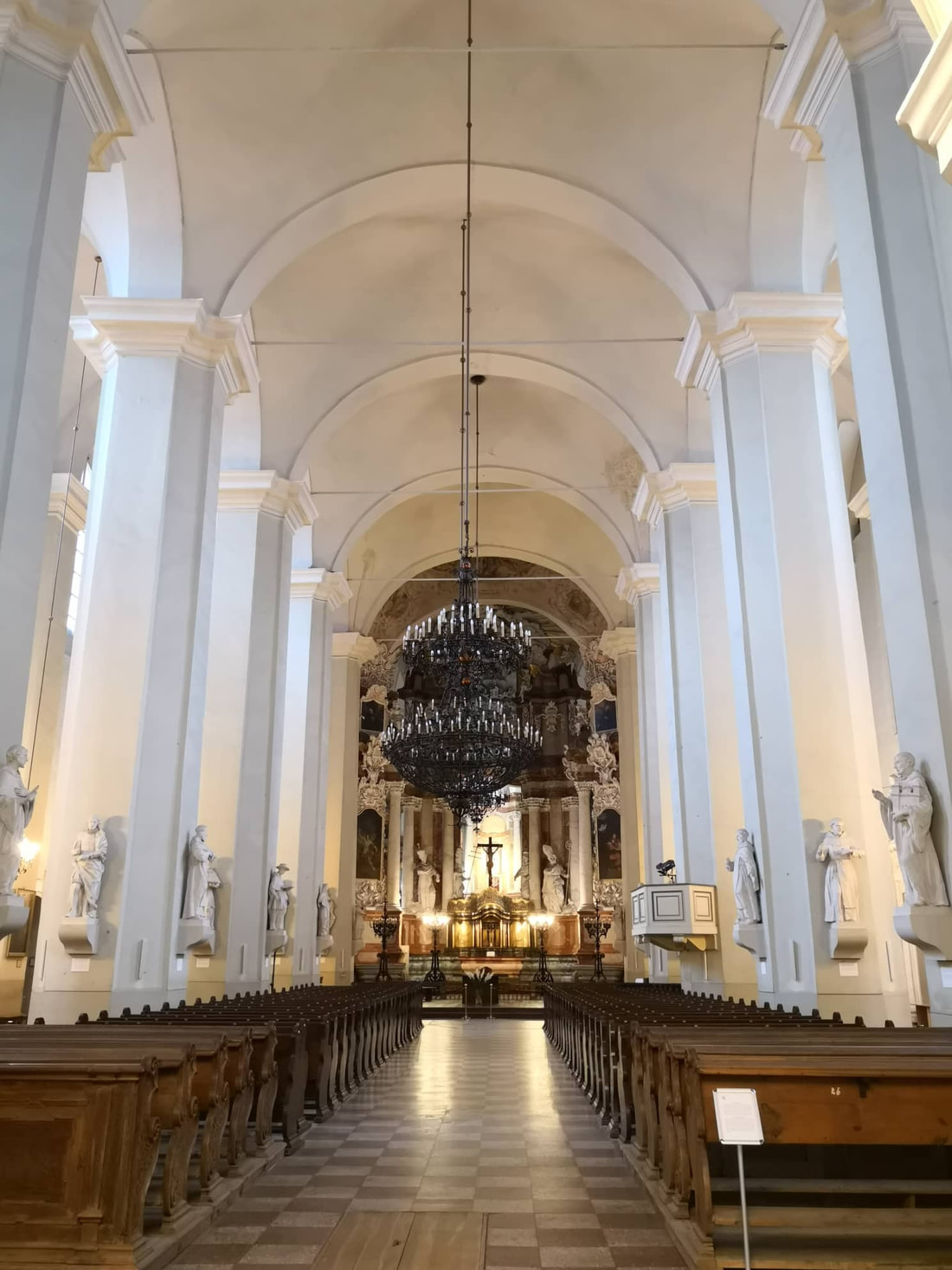
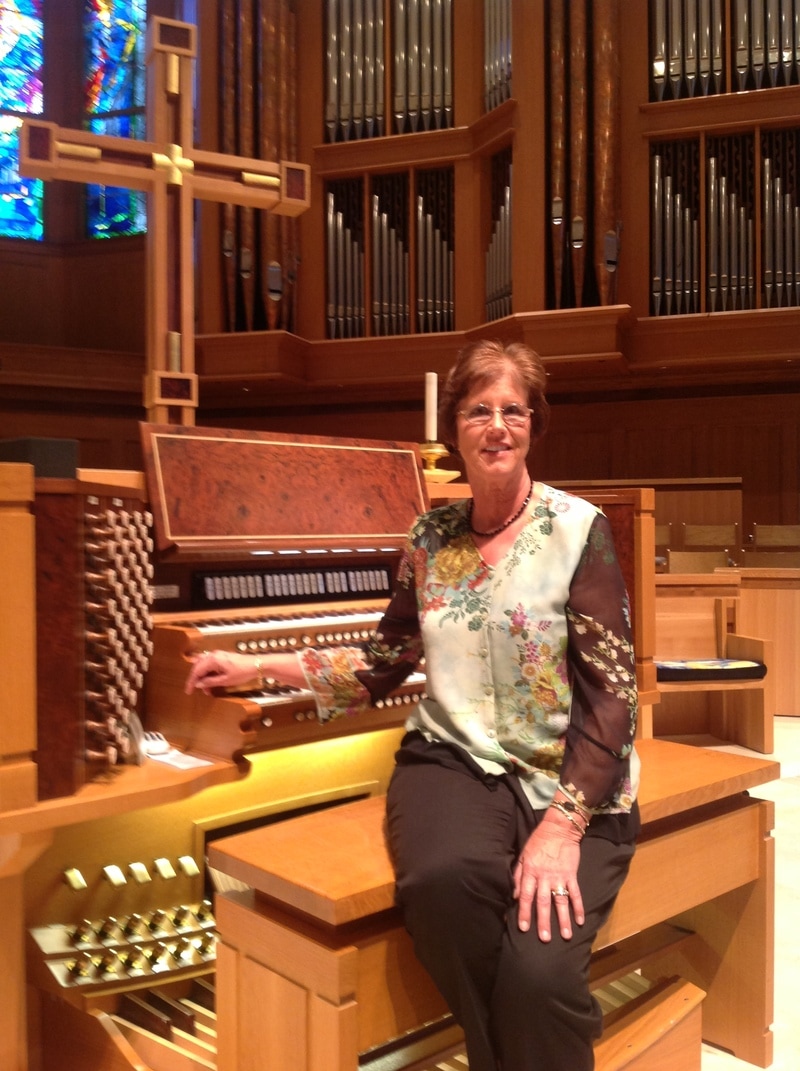
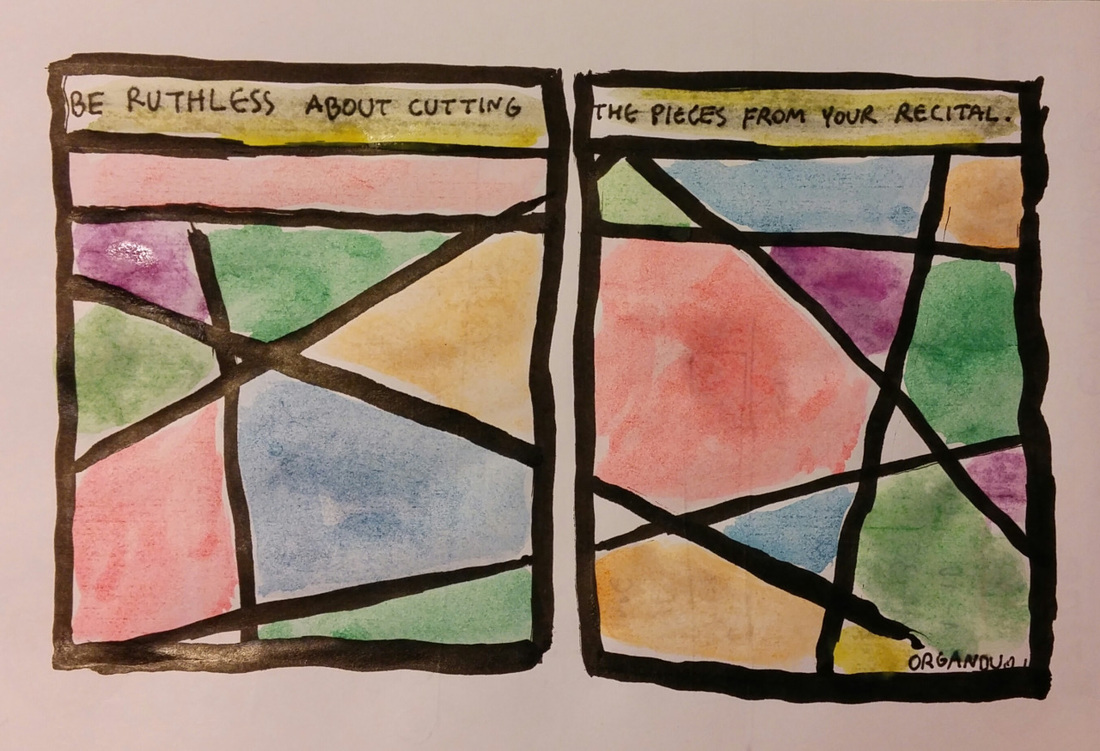
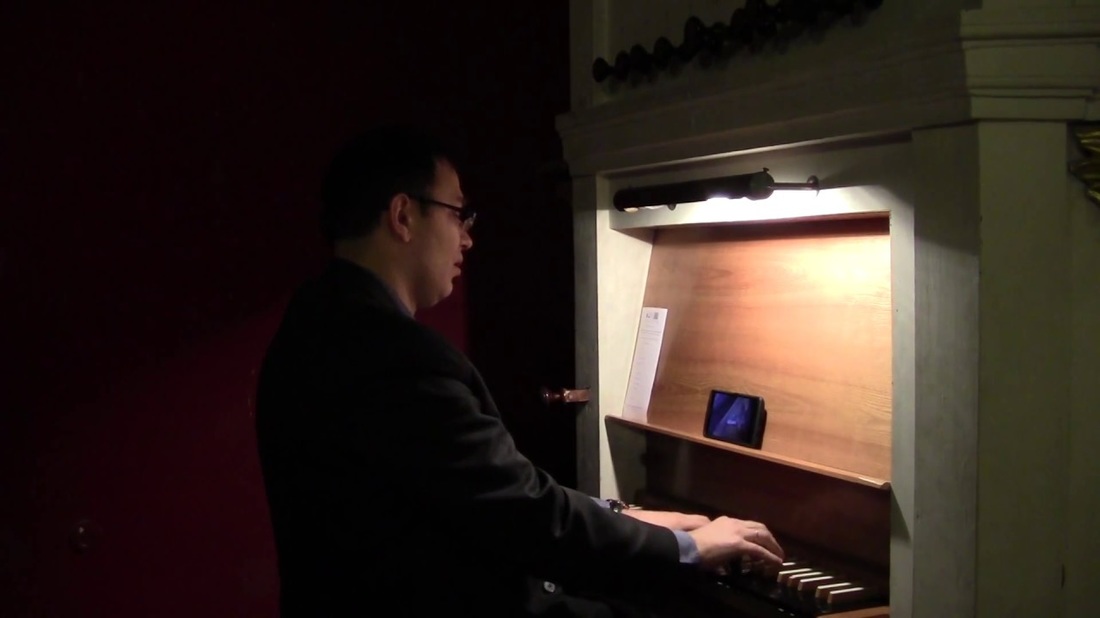
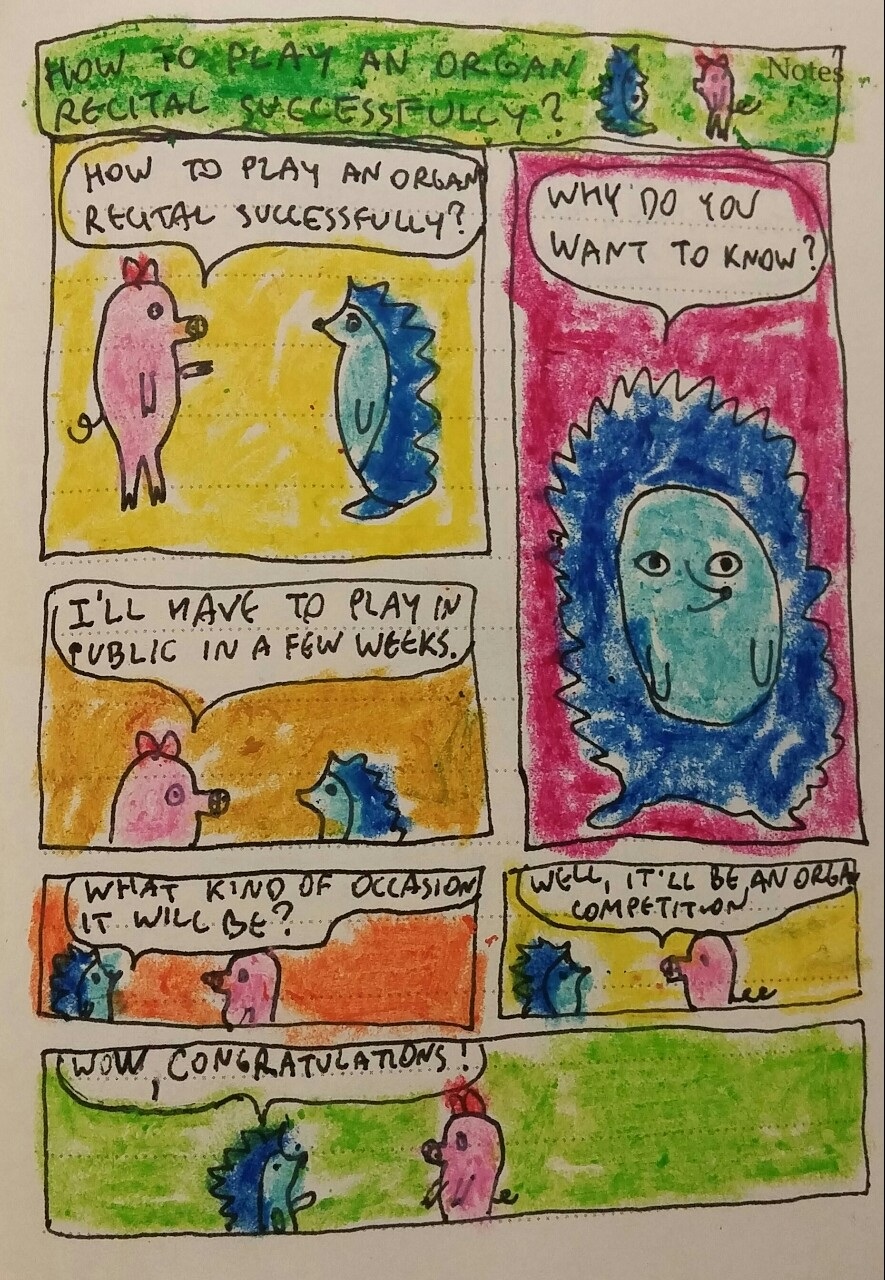
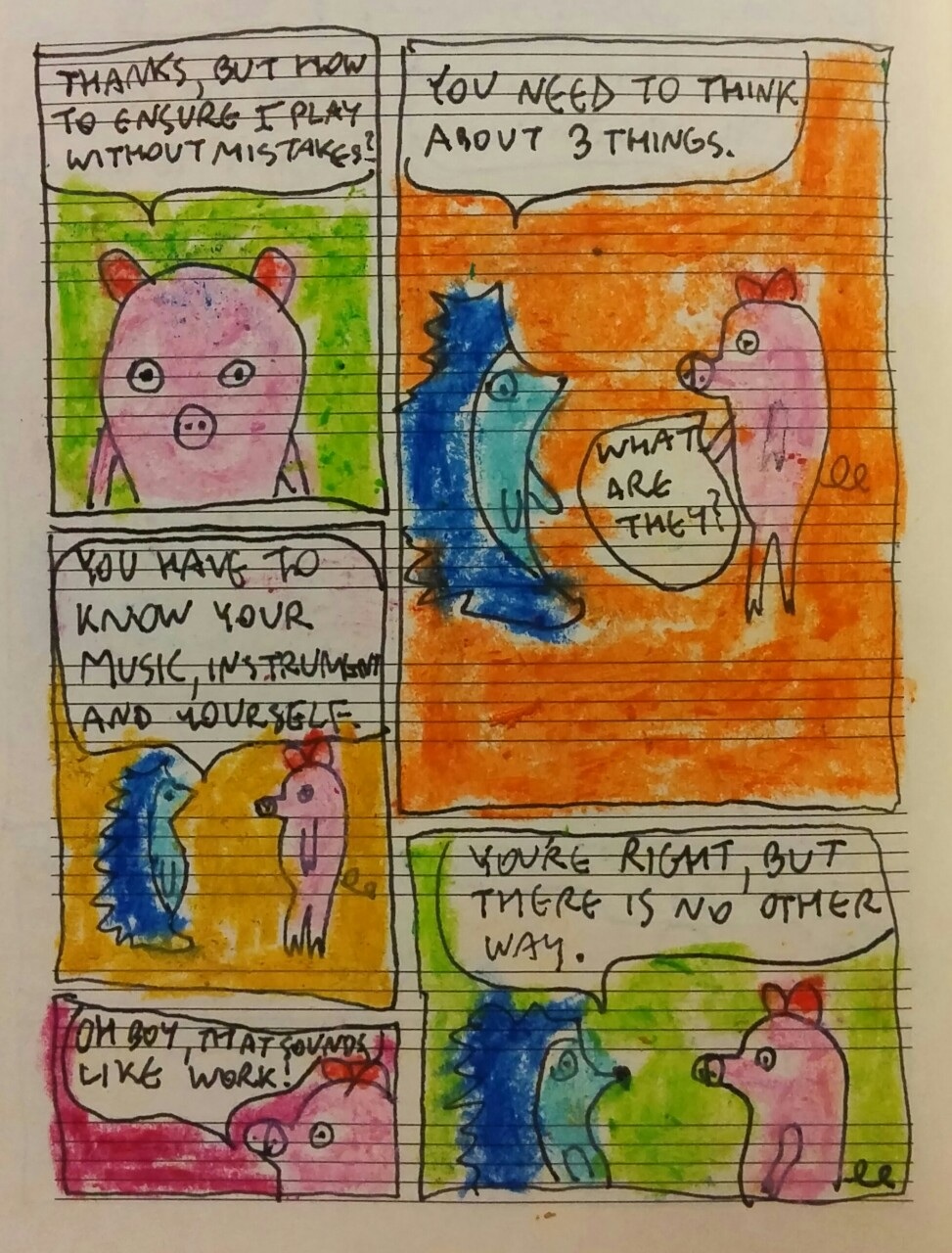
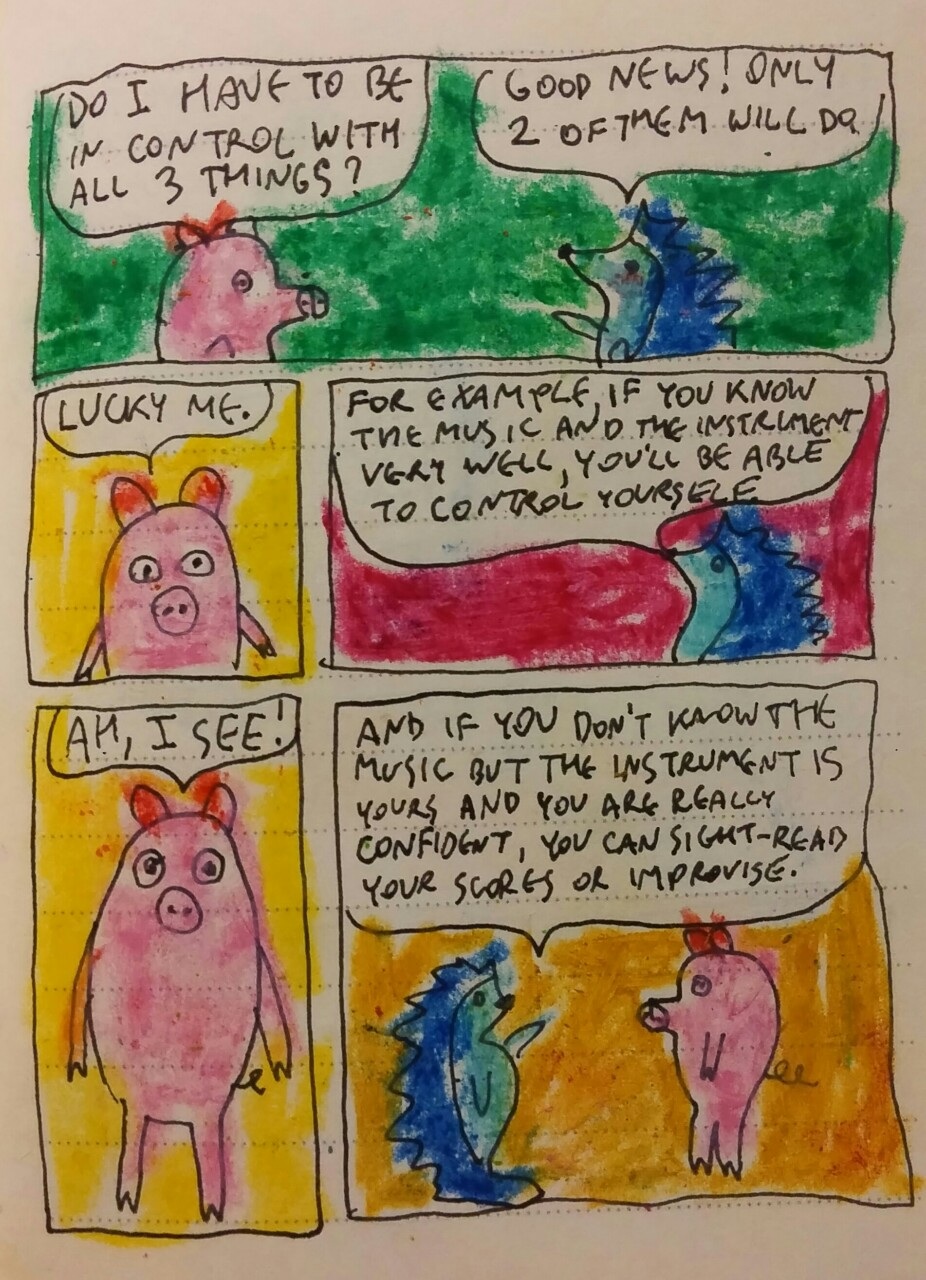
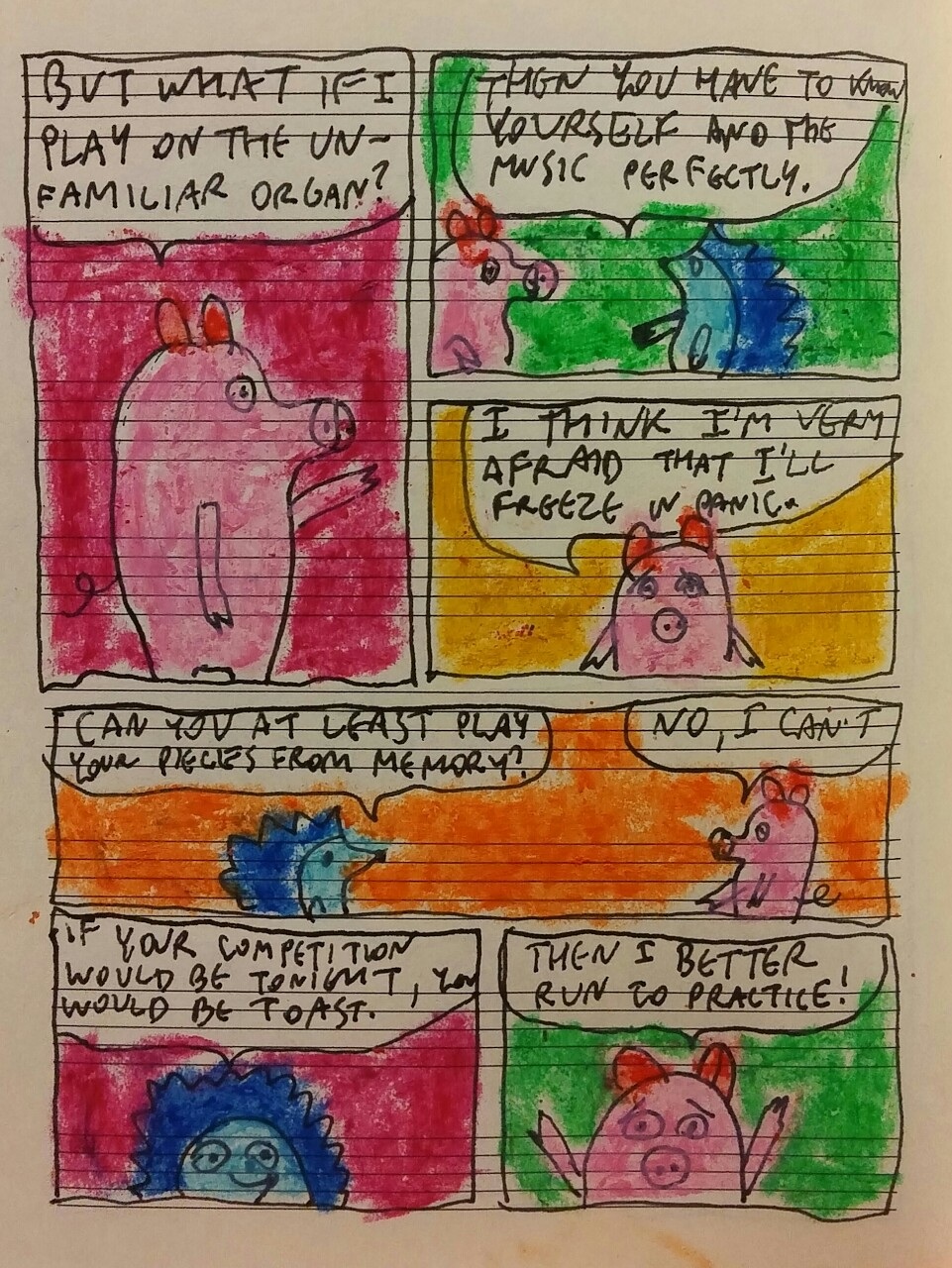
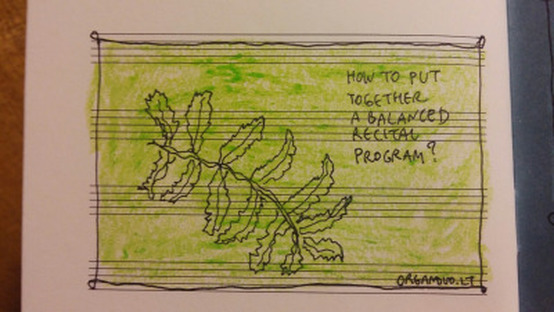
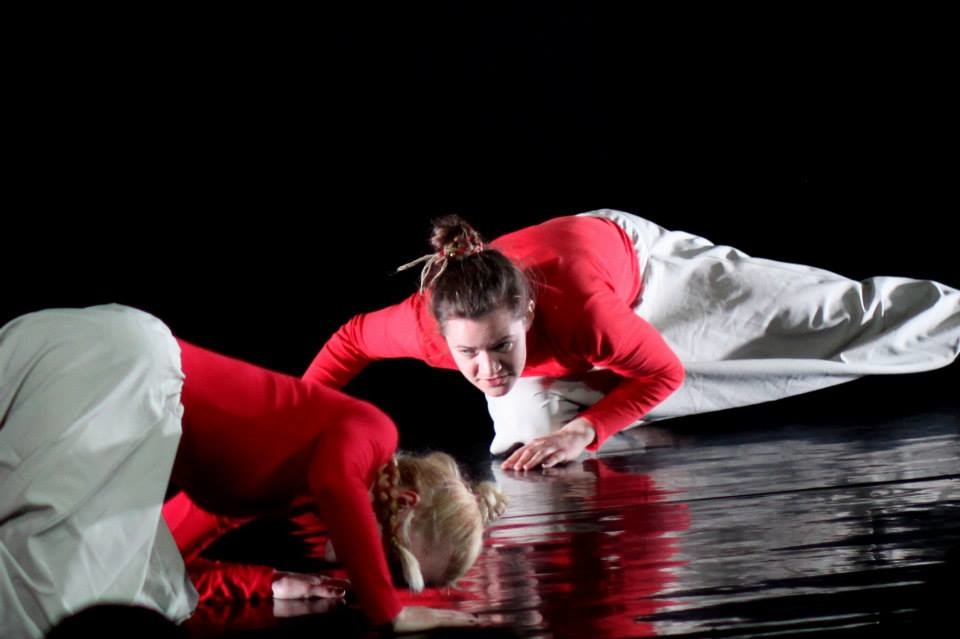
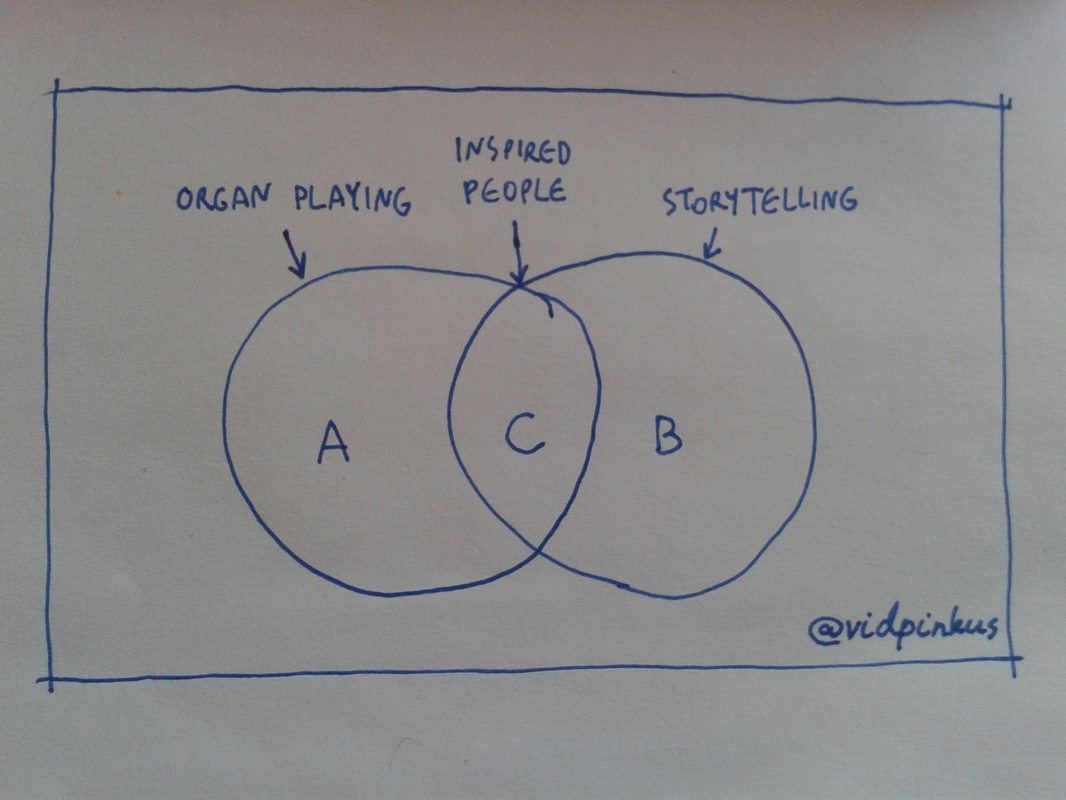



 RSS Feed
RSS Feed